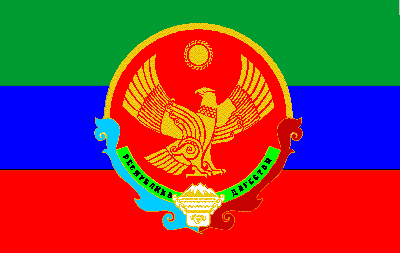 Russian president Dmitry Medvedev last week signed a bill expanding FSB powers in order for Russian secret services to be more more effective in their fight against terrorism. The FSB can now officially warn and fine citizens against “creating the conditions” for crimes.
Russian president Dmitry Medvedev last week signed a bill expanding FSB powers in order for Russian secret services to be more more effective in their fight against terrorism. The FSB can now officially warn and fine citizens against “creating the conditions” for crimes.
Russia has broadened the authority of the Federal Security Service, the KGB’s main successor agency, giving it Soviet-style repressive powers in a move critics say could be used to stifle protests and intimidate government opponents.
Russian President Dmitry Medvedev signed a law Thursday allowing the agency, known by its initials FSB, to issue warnings or detain people suspected of preparing to commit crimes against Russia’s security — which could include participating in anti-government rallies. Perpetrators face fines or up to 15 days detention.
Like many past restrictions, the law was described as part of an effort to combat extremism. The bill, submitted to Russian lawmakers in April, followed twin subway bombings in Moscow that killed 40 people and reflected the Kremlin’s dissatisfaction with critical media coverage of its anti-terrorism efforts.
A senior lawmaker said the law protects people from abuse by law enforcement officers.
“Officers of law enforcement agencies have long talked about the necessity of switching from investigating crimes to their prevention,” Mikhail Margelov, the Kremlin-connected head of the foreign affairs committee in the upper house of Russian parliament, said in a statement. “The amendments do not turn FSB into a new edition of once-almighty KGB but protect Russian citizens from outrages by men in uniform.”
Some of the law’s articles, including ones that toughen control over media for “extremist statements” and allow FSB to publish warnings in the press, were removed or toned down following severe criticism from opposition and even Kremlin loyalists.
However, a lawmaker with the Communist party that remains the largest opposition force in Russia’s rubber-stamp parliament, said the amendments did not change the law’s repressive character.
“Despite all the promises to correct the most odious articles, by the second reading nothing has been changed in the text,” Viktor Ilykhin told The Associated Press.
A Kremlin loyalist from a nationalist party praised the law for its “preventative measures.”
“This is not a repressive law,” Vladimir Zhirinovsky, leader of the nationalist Liberal Democratic party, told Gazeta.ru online daily. “We’re only talking about preventive measures.”
Kremlin critics say, however, that the new measures could be used to violate the rights of opposition, and its obscure wording would leave the legislation open to interpretation.
“It’s an ugly law with obscure formulas,” independent political analyst Yulia Latynina told AP. “In case a drunken FSB officer is shooting at you, and there have been many such cases, you might end up getting jailed for 15 days for merely trying to escape.”
The opposition has accused the Kremlin of turning Russia into a Soviet-style police state, and many Russians say they have experienced or fear abuse at the hands of FSB officers. Government critics say corruption among the FSB and other agencies stifles business activity and stunts the economy.
Some rights activists say the law simply legalizes practices FSB officers have been using for years.
“I don’t think it adds anything to what FSB has been doing without any laws,” former Soviet dissident and head of the Moscow Helsinki group Lyudmila Alexeyeva told AP. “But it’s very sad when a law approves the outrage of such a dangerous service as FSB.”
The legislation continues a trend under former President Vladimir Putin, blamed by the opposition and the West for rolling back Russia’s democratic reforms of the 1990s. The former KGB officer and FSB head allowed the security services to regain power and influence at the expense of Russia’s democratic institutions.
Putin is now prime minister, and many see his intolerance of dissent as influencing Medvedev, his hand-picked successor.
The bill has raised doubts about Medvedev’s commitment to promoting full-fledged democracy and freedom of expression. Medvedev often has spoken of instituting judicial and police reforms, and has taken a less hard line on many issues than Putin.
Medvedev, who initiated the bill, angrily retorted to criticism. He said earlier this month that “each country has the right to perfect its legislation.”

 Russian Police
Russian Police